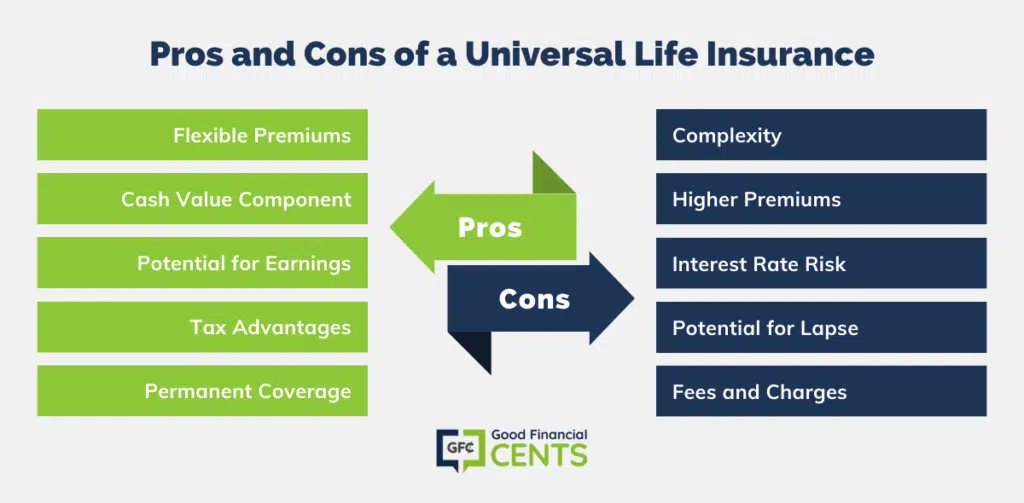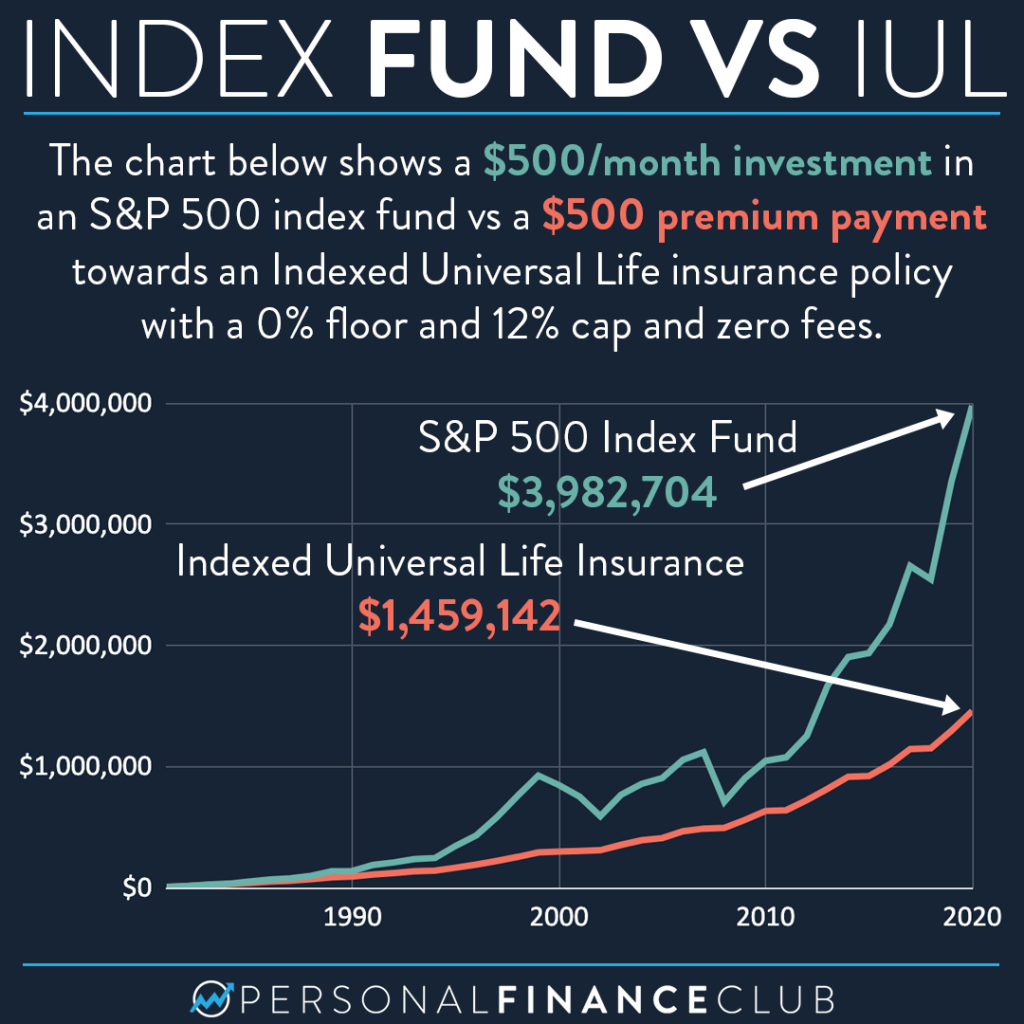All Categories
Featured
Table of Contents
1), often in an effort to beat their classification averages. This is a straw man debate, and one IUL people love to make. Do they compare the IUL to something like the Lead Total Amount Stock Exchange Fund Admiral Shares with no lots, a cost ratio (ER) of 5 basis points, a turnover ratio of 4.3%, and a phenomenal tax-efficient record of distributions? No, they compare it to some horrible actively managed fund with an 8% load, a 2% ER, an 80% turn over proportion, and a terrible record of short-term capital gain circulations.
Shared funds commonly make annual taxable distributions to fund proprietors, also when the worth of their fund has gone down in worth. Shared funds not just call for earnings coverage (and the resulting yearly tax) when the mutual fund is increasing in worth, however can also impose revenue tax obligations in a year when the fund has gone down in worth.
That's not just how common funds work. You can tax-manage the fund, harvesting losses and gains in order to decrease taxed distributions to the financiers, yet that isn't somehow going to transform the reported return of the fund. Only Bernie Madoff types can do that. IULs stay clear of myriad tax catches. The possession of mutual funds might require the shared fund owner to pay projected taxes.

IULs are simple to place to ensure that, at the owner's fatality, the recipient is not subject to either revenue or inheritance tax. The same tax reduction techniques do not work almost also with shared funds. There are countless, typically costly, tax catches connected with the moment trading of shared fund shares, traps that do not relate to indexed life insurance policy.
Possibilities aren't really high that you're going to be subject to the AMT as a result of your mutual fund distributions if you aren't without them. The remainder of this one is half-truths at best. For example, while it is true that there is no earnings tax obligation because of your heirs when they inherit the profits of your IUL plan, it is also true that there is no income tax obligation because of your heirs when they inherit a mutual fund in a taxable account from you.
Iul Vs Term Life
There are far better methods to stay clear of estate tax obligation concerns than purchasing investments with low returns. Mutual funds may trigger revenue tax of Social Protection advantages.

The development within the IUL is tax-deferred and might be taken as free of tax earnings using financings. The plan proprietor (vs. the mutual fund supervisor) is in control of his/her reportable revenue, therefore allowing them to reduce or even eliminate the tax of their Social Protection advantages. This is terrific.
Here's another very little issue. It's true if you buy a mutual fund for say $10 per share right before the circulation date, and it disperses a $0.50 circulation, you are then going to owe taxes (probably 7-10 cents per share) in spite of the fact that you haven't yet had any gains.
But ultimately, it's actually concerning the after-tax return, not how much you pay in tax obligations. You are going to pay more in tax obligations by utilizing a taxable account than if you buy life insurance policy. You're also probably going to have even more cash after paying those taxes. The record-keeping needs for having common funds are considerably more intricate.
With an IUL, one's documents are maintained by the insurance provider, duplicates of annual declarations are mailed to the owner, and circulations (if any kind of) are amounted to and reported at year end. This is also type of silly. Naturally you need to maintain your tax records in case of an audit.
Iul Training
Hardly a reason to buy life insurance policy. Common funds are commonly part of a decedent's probated estate.
On top of that, they are subject to the hold-ups and expenditures of probate. The profits of the IUL policy, on the other hand, is always a non-probate circulation that passes beyond probate straight to one's named recipients, and is therefore not subject to one's posthumous creditors, undesirable public disclosure, or similar delays and prices.
We covered this one under # 7, however just to summarize, if you have a taxed mutual fund account, you have to place it in a revocable count on (and even easier, utilize the Transfer on Fatality designation) in order to prevent probate. Medicaid disqualification and life time earnings. An IUL can give their owners with a stream of earnings for their whole lifetime, no matter how much time they live.

This is beneficial when arranging one's affairs, and converting possessions to income before an assisted living home arrest. Common funds can not be transformed in a similar manner, and are generally taken into consideration countable Medicaid assets. This is one more stupid one supporting that bad individuals (you recognize, the ones who need Medicaid, a federal government program for the bad, to spend for their assisted living facility) must make use of IUL rather than common funds.
Equity Index Insurance
And life insurance looks dreadful when contrasted fairly versus a retired life account. Second, individuals that have cash to buy IUL above and past their pension are mosting likely to have to be horrible at managing cash in order to ever receive Medicaid to spend for their nursing home expenses.
Chronic and incurable disease rider. All plans will certainly permit a proprietor's simple accessibility to money from their policy, commonly forgoing any kind of surrender fines when such people suffer a serious illness, require at-home care, or become confined to an assisted living facility. Common funds do not supply a similar waiver when contingent deferred sales charges still relate to a shared fund account whose proprietor requires to sell some shares to fund the expenses of such a remain.
Irl Insurance
Yet you get to pay more for that benefit (cyclist) with an insurance coverage. What a lot! Indexed universal life insurance policy supplies death advantages to the recipients of the IUL owners, and neither the owner nor the recipient can ever lose money as a result of a down market. Mutual funds supply no such assurances or death benefits of any kind of kind.
Now, ask on your own, do you actually require or want a survivor benefit? I definitely do not require one after I reach economic self-reliance. Do I want one? I expect if it were inexpensive enough. Certainly, it isn't low-cost. Usually, a purchaser of life insurance policy spends for truth price of the life insurance policy benefit, plus the expenses of the plan, plus the earnings of the insurance provider.
Universal Insurance Logo
I'm not totally certain why Mr. Morais included the entire "you can't shed cash" once more right here as it was covered quite well in # 1. He simply intended to duplicate the most effective selling point for these points I intend. Once more, you do not shed nominal dollars, however you can lose genuine dollars, along with face significant opportunity expense because of low returns.

An indexed global life insurance policy plan owner might exchange their policy for an entirely different policy without causing income taxes. A shared fund owner can stagnate funds from one mutual fund company to one more without marketing his shares at the previous (therefore triggering a taxable occasion), and redeeming brand-new shares at the latter, usually based on sales costs at both.
While it is true that you can trade one insurance plan for another, the factor that individuals do this is that the first one is such a terrible policy that also after buying a brand-new one and experiencing the early, unfavorable return years, you'll still appear ahead. If they were offered the best plan the very first time, they shouldn't have any type of desire to ever before exchange it and undergo the early, adverse return years once more.
Latest Posts
Equity Index Universal Life Insurance
Iul Death Benefit
Universal Life Insurance Retirement